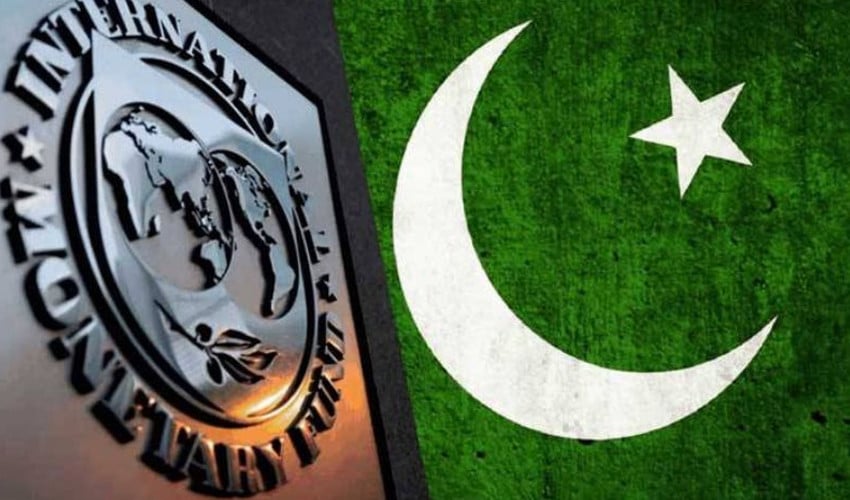
The International Monetary Fund (IMF), on Friday, asked Pakistan to implement the Supreme Court's 2013 decision requiring parliamentary oversight of government spending. It also recommended a special audit of supplementary grants issued over the past decade to enhance fiscal transparency and accountability.
The IMF's report on Pakistan's poor budget practices highlighted the need to enforce the ruling that mandates supplementary budget statements undergo the same scrutiny and approval process as the annual budget, including prior approval by the National Assembly. To ensure compliance, the report recommended amending relevant laws, including Article 84 of the Constitution, to remove ambiguities.
The IMF noted that the government's 2014 petition against the court judgment was dismissed, leaving no legal hindrance to its implementation. It added that the Auditor General of Pakistan (AGP) should conduct a special audit of supplementary grants issued in the past ten years to assess their mechanisms and effectiveness.
"Notwithstanding the Supreme Court's final and binding judgment supporting the ex-ante approval of supplementary grants, relevant laws and rules can be amended to ensure greater certainty and clarity on its interpretation and application," the IMF stated.
The IMF said that a constitutional amendment proposed in 2019 sought to revise Article 84, requiring National Assembly approval for supplementary grants except in emergencies. However, the bill failed to secure the necessary parliamentary majority.
The report revealed that in fiscal year 2022-23, supplementary grants exceeded 50% of budget spending, a figure the IMF found alarming. It stated that Pakistan's reliance on supplementary grants and technical virementsreallocations within the budgethas undermined legislative oversight and deviates from international best practices.
"Given the extraordinary latitude taken by the executive in its interpretation of Article 84 of the Constitution to approve these grants without the prior approval of the National Assembly, this means that a significant proportion of spending does not undergo the prior scrutiny of the latter," the IMF added.
The lender underlined that Pakistan stands out negatively among nations for its weak parliamentary oversight of supplementary grants, which compromises fiscal discipline. The IMF's Fiscal Transparency Code advised that any significant changes to budgeted expenditure should require legislative approval beforehand.
The IMF noted that the finance ministry appears to encourage the use of supplementary grants. For example, the decision to hold the Shanghai Cooperation Organisation's Heads of Government Summit in Islamabad was made over a year ago, yet no funds were allocated for it in the budget. As a result, ministries requested Rs5 billion in supplementary grants, of which Rs2.3 billion has already been disbursed.
With public debt absorbing 60% of budgeted revenues, the IMF underscored the need for stringent fiscal controls. It stated that Pakistan's debt-to-GDP ratio had risen by 16 percentage points between 2017 and FY2023, creating additional financial stress.
The IMF also highlighted inefficiencies in Pakistan's dual budgeting system, where development and recurrent expenditures are planned and executed separately. It criticised the fragmented organisation of the Finance Division, which limits its ability to provide effective policy advice or scrutinise budget proposals.
The report recommended enhancing the Finance Division's capacity to lead macro-fiscal forecasting, preparing monthly budget performance reports, and publishing analyses of forecast accuracy in the Monthly Economic Update and Outlook.
The IMF observed that Pakistan's fiscal outcomes have consistently deviated from budgeted estimates, largely due to political and external uncertainties. Over the period 2017-2023, actual fiscal deficits exceeded budgeted deficits by an average of 25%. Non-tax revenue performance also deteriorated significantly, with year-on-year declines of 53% in 2019 and 43% in 2022.
The lender attributed part of these discrepancies to the finance ministry's inefficient practices, which have resulted in a bloated pipeline of Public Sector Development Plan (PSDP) projects and poor coordination between spending categories.
The IMF pointed to the example of Pakistan's previous caretaker government, which managed the budget effectively without resorting to supplementary grants. It argued that this demonstrates the possibility of disciplined budget management without excessive flexibility.



1725443747-0/Untitled-design-(5)1725443747-0-165x106.webp)














COMMENTS
Comments are moderated and generally will be posted if they are on-topic and not abusive.
For more information, please see our Comments FAQ